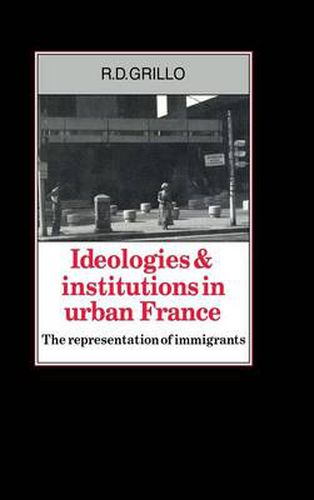Readings Newsletter
Become a Readings Member to make your shopping experience even easier.
Sign in or sign up for free!
You’re not far away from qualifying for FREE standard shipping within Australia
You’ve qualified for FREE standard shipping within Australia
The cart is loading…






There has been growing interest in recent years in applying anthropological techniques to the study of urban life in Western Europe. In this book, based on intensive fieldwork in a major French provincial city (Lyon), Ralph Grillo shows how an anthropological perspective enhances our understanding of institutional processes and ideological forces in industrial society by presenting a detailed account of relations between the indigenous French population and immigrant workers and their families of non-French origin. The framework of the book is provided by two linked themes. First, the study shows how the situation of immigrants (called by some immigres, by others etrangers) is represented ideologically by various elements of French society, as well as by the immigrants themselves, in different ways as ‘problematic’. Dr Grillo examines this ideological dimension initially by contrasting the discourses of the political Right and Left concerning a range of immigrant ‘problems’, for example in the fields of housing, family life, school, language use, and work. He then goes on to show that not only are there significant ideological differences within both Right and Left, but also similarities between them which stem from certain basic cultural preoccupations of French thought.
$9.00 standard shipping within Australia
FREE standard shipping within Australia for orders over $100.00
Express & International shipping calculated at checkout
There has been growing interest in recent years in applying anthropological techniques to the study of urban life in Western Europe. In this book, based on intensive fieldwork in a major French provincial city (Lyon), Ralph Grillo shows how an anthropological perspective enhances our understanding of institutional processes and ideological forces in industrial society by presenting a detailed account of relations between the indigenous French population and immigrant workers and their families of non-French origin. The framework of the book is provided by two linked themes. First, the study shows how the situation of immigrants (called by some immigres, by others etrangers) is represented ideologically by various elements of French society, as well as by the immigrants themselves, in different ways as ‘problematic’. Dr Grillo examines this ideological dimension initially by contrasting the discourses of the political Right and Left concerning a range of immigrant ‘problems’, for example in the fields of housing, family life, school, language use, and work. He then goes on to show that not only are there significant ideological differences within both Right and Left, but also similarities between them which stem from certain basic cultural preoccupations of French thought.